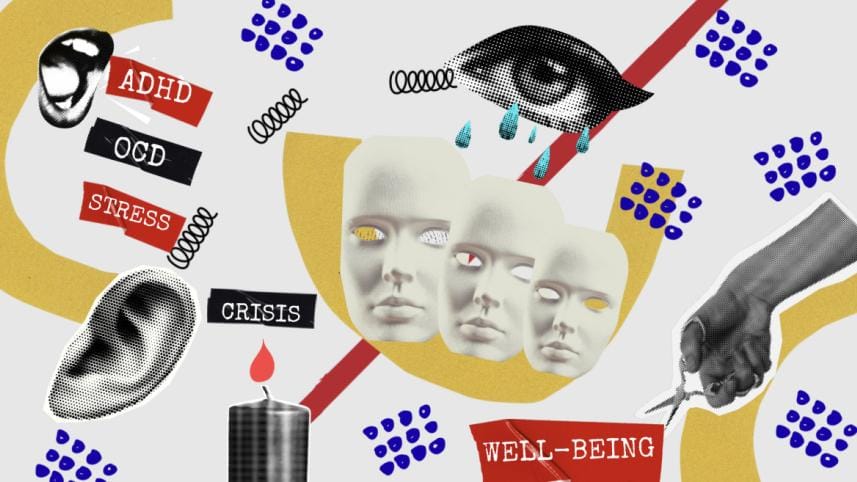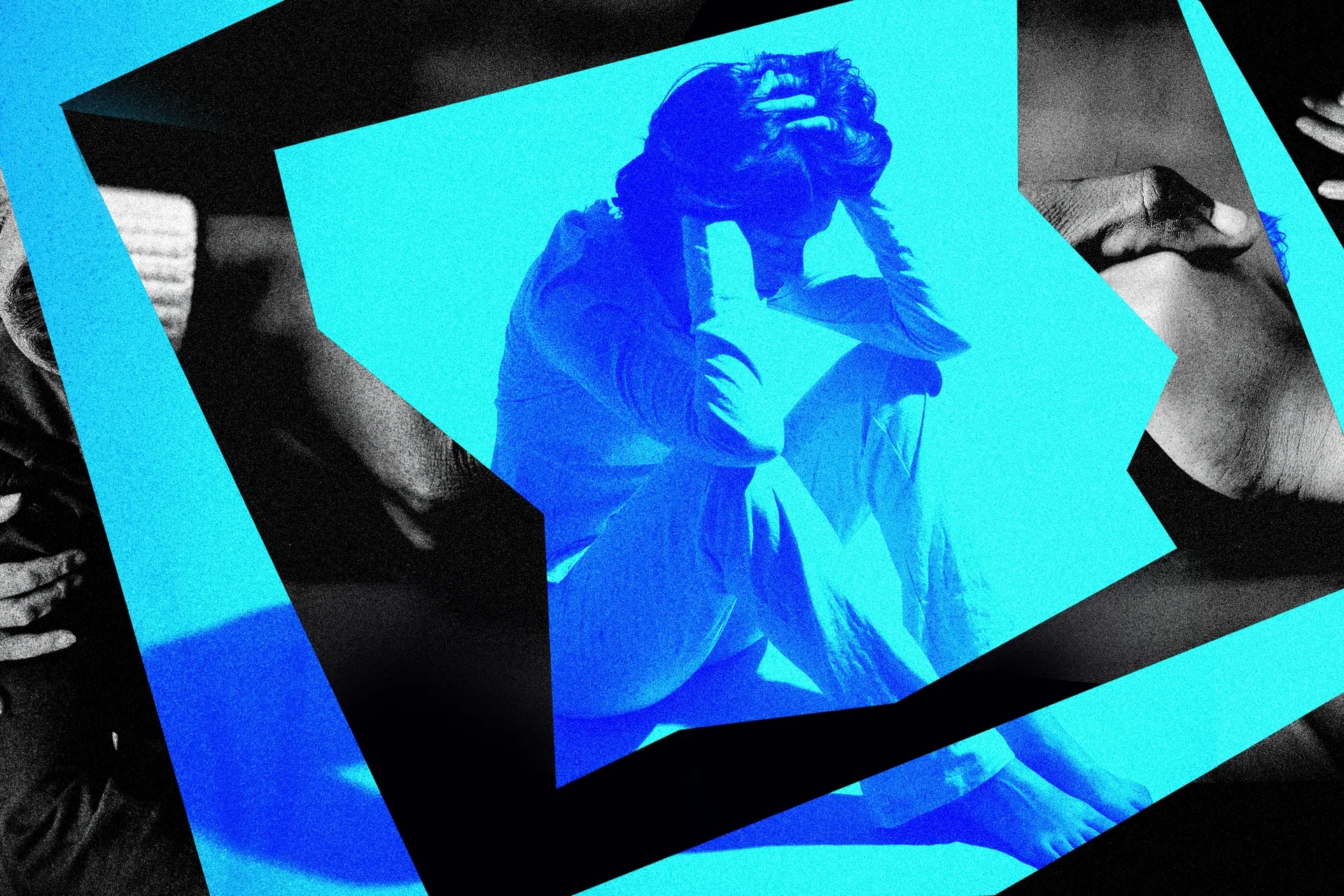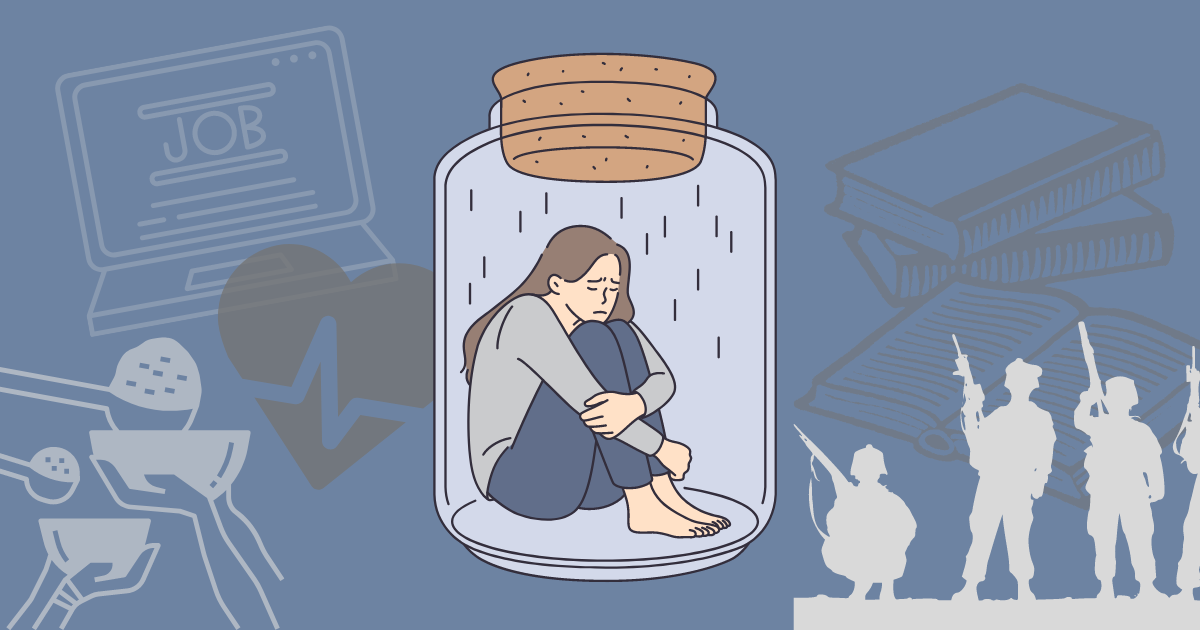The pain we don’t see

One of the most insidious challenges of the 21st century, that has grown into a tsunami we remain unprepared for is the global mental health crisis. According to the World Health Organization (WHO), over a billion people around the world are living with some form of mental health condition. Words such as "stress," "depression," "ADHD," or "OCD" frequently appear in casual conversations. Yet, many people fail to recognise their existence and admit that they are real, complex, and deserving of attention.
As someone who suffered from major depressive disorder for almost four years, I know the drawbacks that arise from a lack of basic awareness. Even for someone like me, a socially active person, deeply connected to others and constantly plugged into the internet, it took far longer than I'd expected to recognise that I was struggling with depression. Even those closest to me couldn't see it. The delay might be partly because of our collective ignorance of the issue, but the stigma that still strongly surrounds conversations of mental health in our society also played a key role.
I have survived so far through therapy, physical activity, family support, and, I must admit, a significant amount of luck. But I often wonder: can I count on that luck forever? And what about the countless others who still cannot speak about their suffering at all, especially in our society?
In Bangla, terms related to mental illness are often reduced to one crude word: pagol (a mad person). That single label, loaded with mockery and shame, pushes families and friends into denial. It prevents them from recognising anxiety, panic attacks, or depression as real, serious conditions that need care, not ridicule. Sadly, in Bangladesh, disabilities caused by mental health conditions are often not acknowledged, yet five percent of the global population suffers from major depression at some point in their lives, and it is now the fourth leading cause of disability worldwide. Countless people miss work, school, and other necessary daily activities due to depression. But, in our society, it is unimaginable for a student or an employee to talk about this disability with their teacher or supervisor and expect to be understood.
Perhaps suicide is the only visible marker in our society that underscores the significance of mental health issues. A 2021 WHO estimate reveals that every year 727,000 people die by suicide globally, making it the third leading cause of death among individuals aged 15–29. In Bangladesh, at least 310 students—from schools, colleges, and universities—died by suicide in 2024, as per a survey published by Achol Foundation earlier this year. We often discuss these lives lost in numbers, but rarely do we stop to consider the human beings, the families, and the pain that remained unseen behind those numbers. Perhaps those lives lost to suicide could have been saved through timely attention and proper care.
While there's a lack of acknowledgment, the growing issue of self-diagnosis in mental health is also becoming a concern on the other hand. Inadequate formal, affordable support and high internet-dependence drive many people to turn to social media or online content and self-diagnose the issue they are experiencing. However, misdiagnosis can delay proper help or worsen the situation, as most of us are not qualified to understand the complexities of the mind just from the internet. We need professional intervention.
Such intervention is more crucial in today's world as we are paradoxically more disconnected than ever, despite being constantly "connected" through social media. The pandemic made this painfully clear. Beyond the fear of the virus itself, one of the most claustrophobic experiences of lockdown was the sudden interruption in human contact. Seeing loved ones through screens gave us the illusion of connection, but deep down, we longed for face-to-face connection. Human beings are inherently social creatures; no algorithm can replace that.
Social media and the internet have also made things worse. Negative news travels fast and the sheer scale of it leaves us feeling helpless in a world where problems never seem to end. The resulting anxiety is worsened by online bullying, harassment, and the hostility one often faces just for holding a different opinion. You can share dozens of beliefs with someone, but one disagreement can still lead to abuse and isolation. It's exhausting and corrosive, and young people are mostly bearing the brunt of this crisis.
Then there's the dopamine trap. Apps and algorithms are designed to keep us hooked with tiny bursts of pleasure, but over time, the same amount isn't enough. The pleasure narrows. It takes more scrolling, more clicking, and more screen time to feel the same small hit. That's why it's so difficult to put down the phone: at first, it's fun, but soon it becomes a compulsion.
And while our minds are overstimulated, our bodies are underused. We move less than ever. We don't walk, we don't play, and we don't exercise. According to the WHO, 31 percent of adults and 80 percent of adolescents do not meet the recommended levels of physical activity. Besides, our interaction with the natural environment has become limited, especially in urban areas. Plus, we have turned to junk food, replacing natural nourishment. All these together impact our mental well-being.
Though this crisis is reshaping our lives and societies, we continue to look away, because it's invisible, it's uncomfortable, and because we don't want to admit how unprepared we are for it. But denial won't save us. Awareness and compassion will. We must build systems that care for our minds with the same seriousness we devote to our bodies. Most of all, talking openly and honestly, without shame, is crucial. To address this mass health and social issue, we need robust mental health support systems. We need to ensure accessible institutions, trained professionals, and social mechanisms designed to help people seek and receive care without fear or shame.
Monorom Polok is a member of the editorial team at The Daily Star.
Views expressed in this article are the author's own.
Follow The Daily Star Opinion on Facebook for the latest opinions, commentaries, and analyses by experts and professionals. To contribute your article or letter to The Daily Star Opinion, see our guidelines for submission.




 For all latest news, follow The Daily Star's Google News channel.
For all latest news, follow The Daily Star's Google News channel. 


Comments